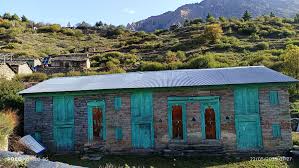Sukesh C. Khajuria asks J&K CM to control Dengue outbreak

Sukesh C. Khajuria asks J&K CM to control Dengue outbreak
Jammu, Nov 17
Senior social and health activist Sukesh C. Khajuria has urged the Jammu and Kashmir government, led by Chief Minister Omar Abdullah, to take immediate and effective measures to combat the growing dengue outbreak across the Union Territory. The call comes as the UT grapples with an alarming rise in dengue cases, particularly in Jammu district, where daily new cases are being reported.
He further charged that the municipal and health authorities have been acting as ‘fire fighting’ agents rather than following the national norms of timely checking the spread of vector borne diseases. He said that authorities acting on piece meal basis start fogging in the area where dengue cases are reported.
“The failure to manage the spread of vector-borne diseases like dengue and Chikungunya has caused immense hardship, especially for the poorer sections of society who are the most vulnerable,” Khajuria said. “The situation has been allowed to worsen due to negligence and lack of coordination between the municipal and health authorities.”
According to official figures, a total of 6,151 dengue cases have been reported in the UT so far this year, with Jammu district accounting for 3,728 cases. Other affected districts include Samba (646 cases), Kathua (593), Udhampur (322), Reasi (287), Rajouri (185), Doda (169), Poonch (69), Ramban (69), and Kishtwar (21). Additionally, 22 cases have been reported in the Kashmir Valley. As of now, 493 patients have been hospitalized due to dengue complications, with 403 having recovered and been discharged, while 78 remain under treatment.
Khajuria urged the Jammu and Kashmir government to urgently implement the guidelines set out by the National Vector Borne Disease Control Programme (NVBDCP) to tackle the outbreak. He highlighted the need for a coordinated and systematic approach, rather than the piecemeal, reactive actions that have been taken so far.
The NVBDCP, a national program under the Directorate General of Health Services, provides a comprehensive framework for the prevention and control of vector-borne diseases. Khajuria stressed the importance of following these guidelines, which include:
Detection and Elimination of Mosquito Breeding Sites: A focused effort to identify and eliminate potential mosquito breeding grounds, particularly in residential areas, rooftops, and other locations where standing water accumulates.
Public Awareness Campaigns: Launching widespread awareness programs to educate the public about preventing mosquito breeding and protecting themselves from mosquito bites.
Indoor and Outdoor Mosquito Control: Encouraging the use of mosquito nets, insecticide-treated nets, and household insecticides. Indoor residual spraying should be conducted in high-risk areas.
Larviciding and Biological Control: The use of larvicides in areas with standing water, along with introducing larvivorous fish in water bodies to control mosquito larvae.
Coordinated Action: Ensuring strong coordination between municipal authorities, health departments, and local bodies for effective and timely action.
Khajuria also called for a targeted action plan for the current dengue season, which is expected to last until December, to prevent further transmission and reduce the burden on the healthcare system.
“The health and well-being of the people of Jammu and Kashmir must be the government’s top priority,” Khajuria said. “It is crucial that immediate steps are taken to prevent further spread and protect the public from the impact of this devastating disease.”






